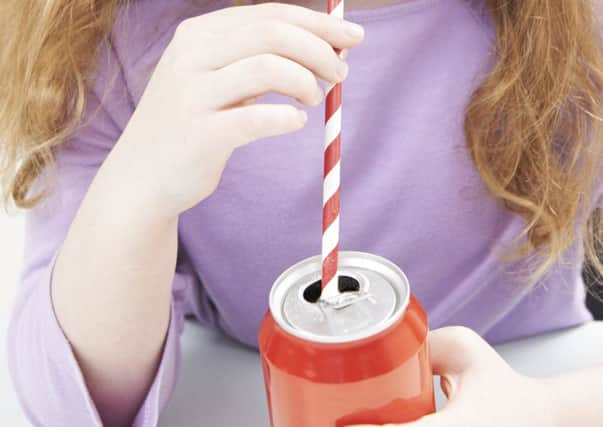Fall in Scots binging on fizzy drinks, cakes and biscuits does not cut obesity


Almost two-thirds of Scottish adults are overweight – with a third of children not at a healthy weight, according to the Scottish Health Survey 2018.
The report found that sugary soft drink consumption by adults and children has halved within the past two years, down from 35 per cent in 2016 to 16 per cent just two years later among two-15-year-olds.
Advertisement
Hide AdAdvertisement
Hide AdThe findings also reveal a fall in the consumption of biscuits and cakes. In 2018, 27 per cent of adults consumed biscuits once a day or more, compared with between 31 per cent and 34 per cent of adults in the years 2008 to 2014. On 2018, 31 per cent of adults consumed cakes at least twice a week, compared with between 34 per cent and 36 per cent in the years 2008 to 2014.
Joanne McLean, research director of the Scottish Health Survey at ScotCen Social Research, said: “It’s promising to see a strong decline in sugary drink consumption.
“However, overall, there has been little or no improvement in many other vital areas, including obesity, smoking and food insecurity and we are yet to see a positive impact of minimum unit pricing on alcohol consumption levels.”
The survey also found that Scots who consider their general health to be good or very good also reached the lowest level since the survey began in 2008. And just 15 per cent of children ate the recommended five portions of fruit or vegetables a day, while 10 per cent of children did not have any fruit or vegetables on the day before being asked.
The survey polled 4,810 adults and 1,983 children across Scotland.
Mental wellbeing in Scotland is at its lowest since 2008. The mean wellbeing score for Scottish adults has dropped from 50 to 49.4 in the last decade.
Men are twice as likely as women to drink at hazardous or harmful levels (32 per cent compared with 16 per cent), as are people living in the least deprived areas (27 per cent) compared with people living in the most deprived areas (18 per cent).
Scottish Liberal Democrat health spokesman Alex Cole-Hamilton described mental ill health as being “at crisis levels”.
Advertisement
Hide AdAdvertisement
Hide AdHe said: “Far too many critical measures of Scotland’s heath are stagnating.
“Deep-seated unhealthy lifestyle choices are having a serious impact on our physical well-being and causing an obesity epidemic.”